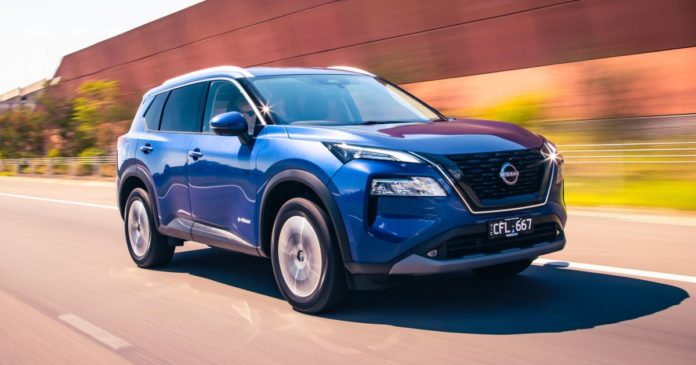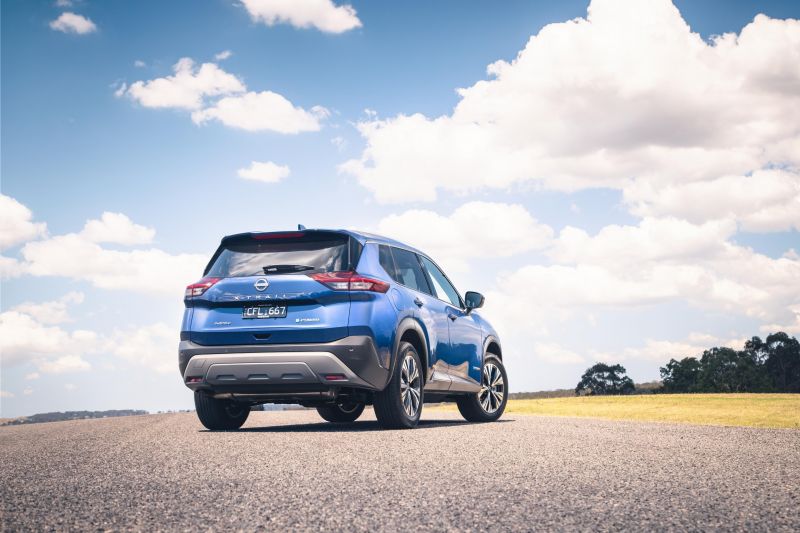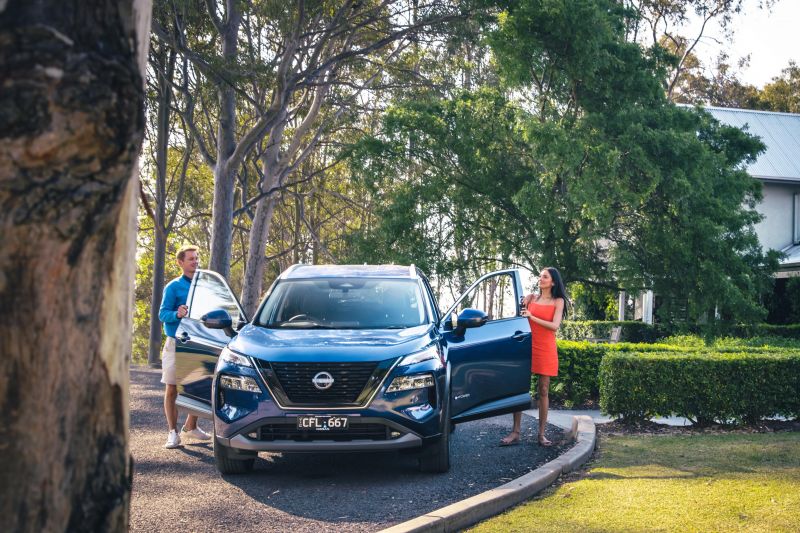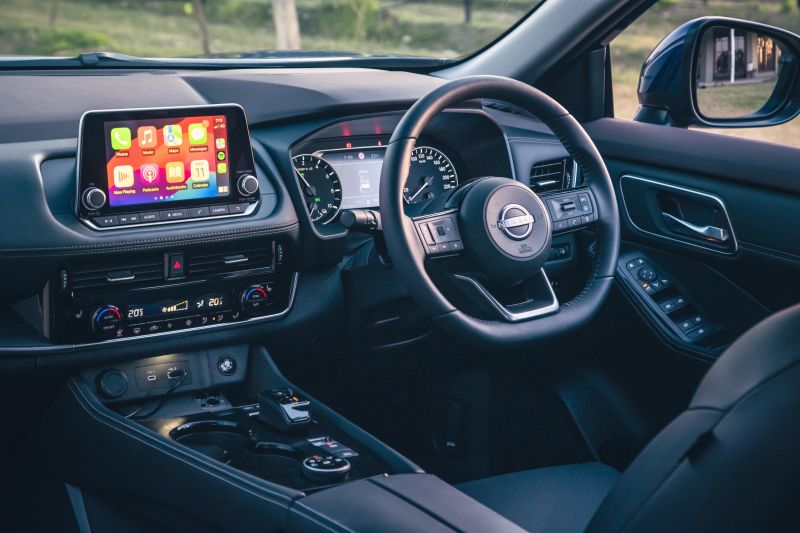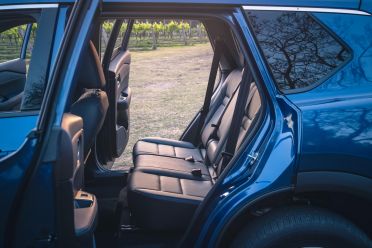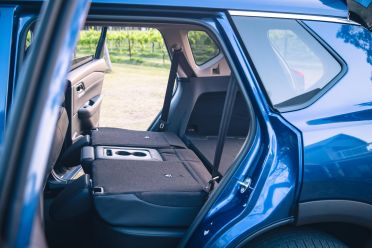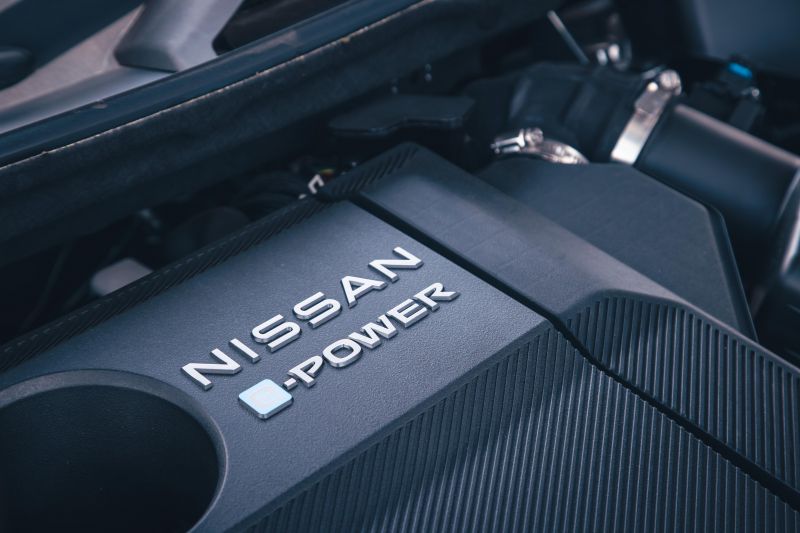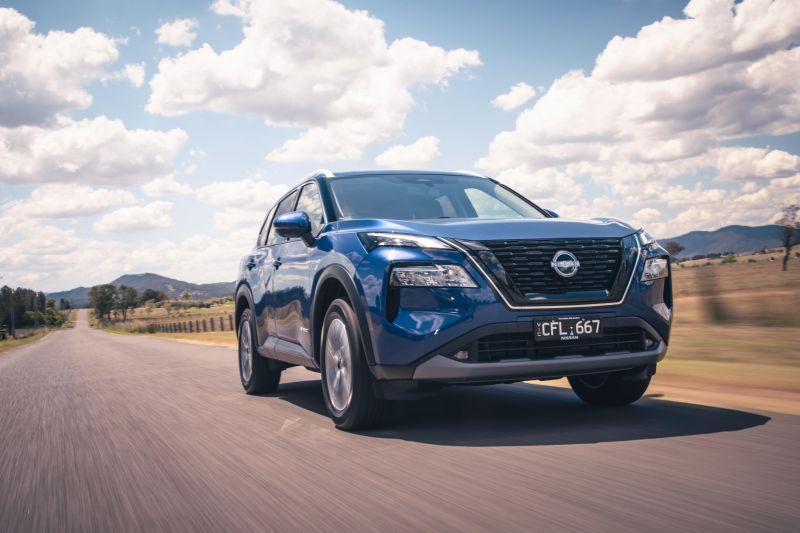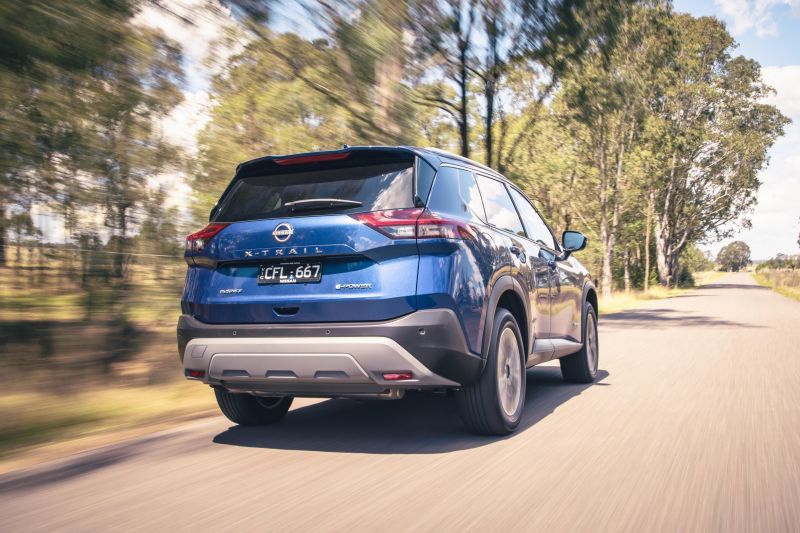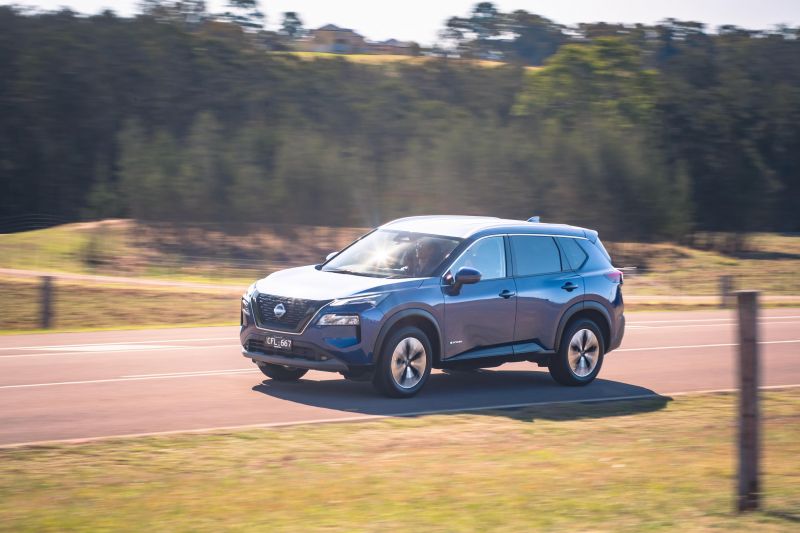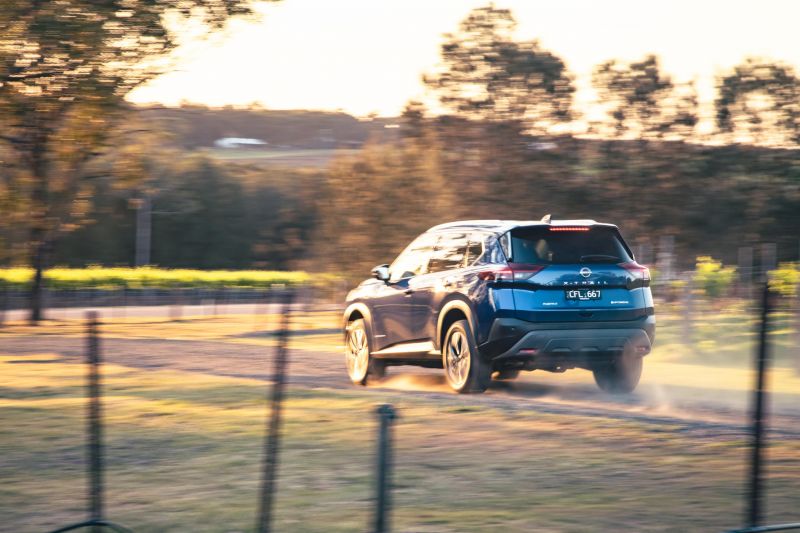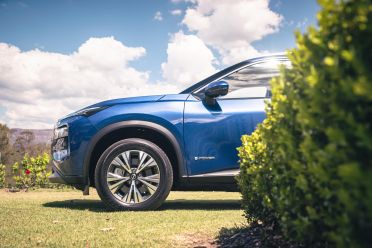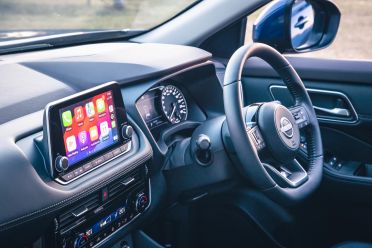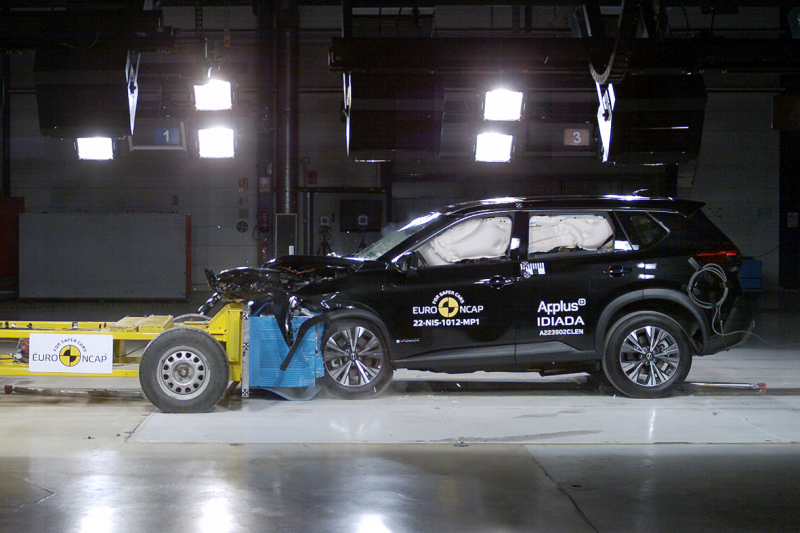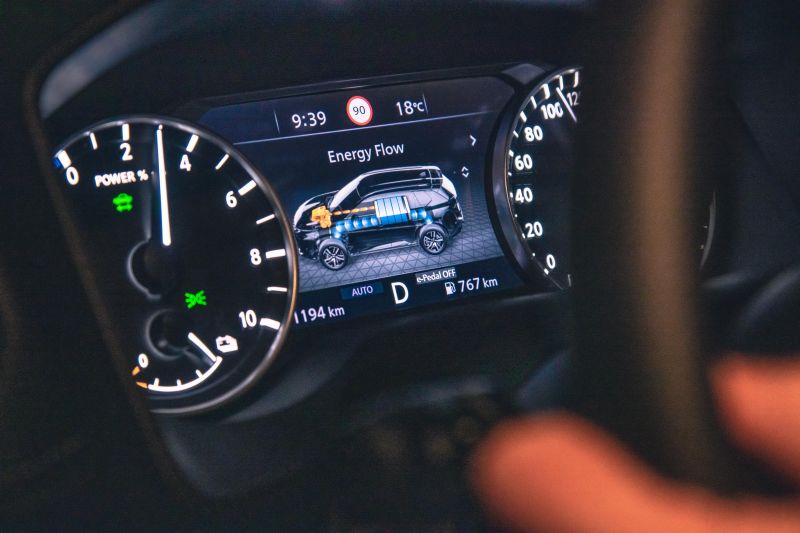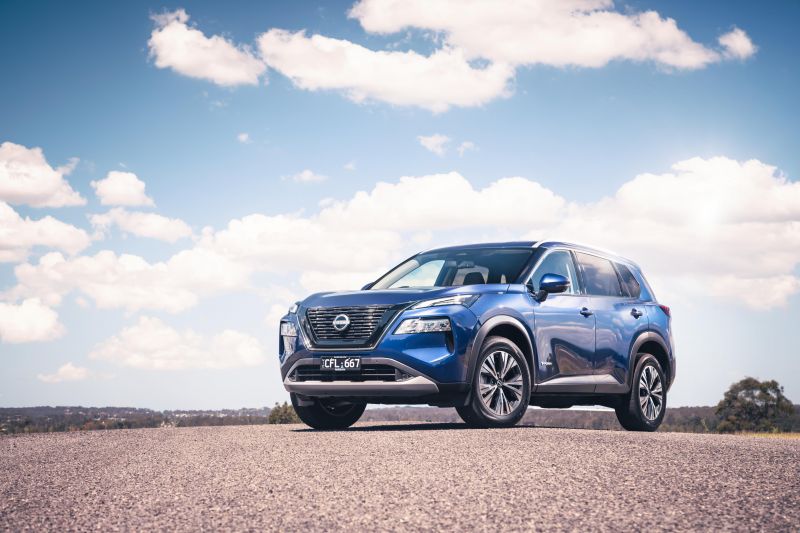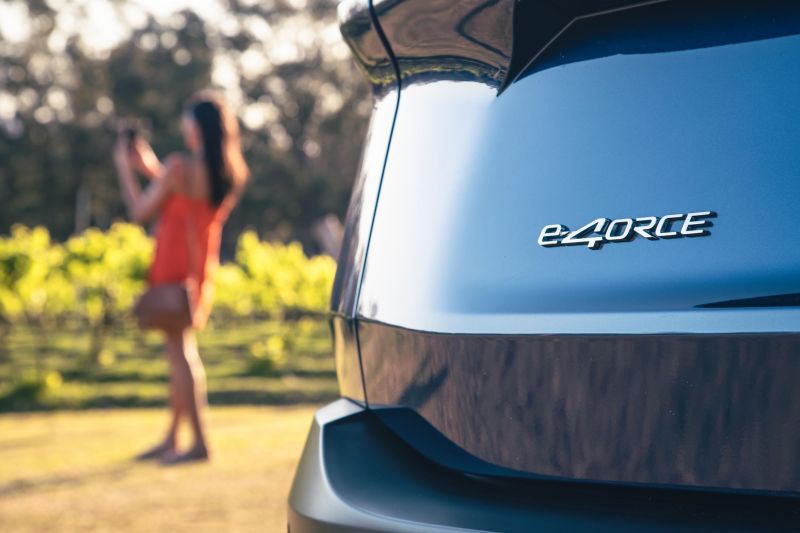Australians are screaming out for more hybrid options – particularly SUVs – and Nissan is answering your calls.
With the 2024 Nissan X-Trail ST-L e-Power with e-4orce, the brand hopes to cash in on those who have been waiting a long time for an electrified RAV4 rival.
Nissan’s hybrid system is different to others on the market. The whole premise of e-Power is to offer hybrid efficiency with the drivability and performance of an electric vehicle. All versions of the X-Trail e-Power in Australia also come standard with dual-motor all-wheel drive, too.
This new variant serves as the entry point into the e-Power line-up, in a bid for the hybrid X-Trail to assert itself as a top pick in what is Australia’s most competitive new vehicle segment.
Should you skip the entree variant and head straight to the main courses that are the Ti and Ti-L models that will have you spending over $60,000 once they’re in your driveway?
How does the Nissan X-Trail fare vs its competitors?
View a detailed breakdown of the Nissan X-Trail against similarly sized vehicles.
Nissan
X-Trail
How much does the Nissan X-Trail ST-L e-Power cost?
The new X-Trail ST-L e-Power with e-4orce starts from $49,990 before on-road costs – up $500 since the original announcement in April.
That represents a $3200 premium over the petrol-powered X-Trail ST-L 4WD, which scores seven seats compared to the e-Power’s five-seat-only interior in Australia, and is just under $5000 more affordable than the Ti e-Power.
At a smidgen under $50,000 before on-road costs, the X-Trail ST-L e-Power is priced between the Toyota RAV4 GXL AWD Hybrid ($47,100) and the RAV4 XSE AWD Hybrid ($50,200). Keep in mind, the RAV4 is Australia’s best-selling SUV right now largely off the back of its in-demand hybrid versions.
Kia won’t have its Sportage HEV in the market until early next year, while Hyundai will likely make you wait for the facelifted Tucson late next year for an electrified engine option. The X-Trail’s twin-under-the-skin, the Mitsubishi Outlander, offers a plug-in hybrid version but it starts at thousands more in its most basic guise.
The latest Honda CR-V shapes up as solid competition, though currently the only hybrid available is the RS flagship which comes in at just under $60,000 drive-away. There’s little in the way of competition for under $50k unless you’re looking at something like the front-drive GWM Haval H6 Ultra HEV (from $44,990 D/A).
2024 Nissan X-Trail e-Power pricing:
- Nissan X-Trail ST-L e-Power with e-4orce: $49,990
- Nissan X-Trail Ti e-Power with e-4orce: $54,690
- Nissan X-Trail Ti-L e-Power with e-4orce: $57,690
What is the Nissan X-Trail ST-L e-Power like on the inside?
The interior is almost identical to the ST-L 4WD I reviewed recently, save for hybrid-specific elements like the power meter, energy graphic in the cluster, as well as the e-Pedal and EV mode buttons on the centre console.
The leatherette upholstery blends nicely with the stitched accents on the dashboard and doors, and there’s contrast with the brown surfaces on the upper end of the dash and doors which is straight out of Mazda’s playbook – they won’t be to everyone’s tastes, though.
Unlike the Ti and Ti-L, the X-Trail ST-L gets analogue instruments flanking a 7.0-inch supervision display, while the floating tablet-style 8.0-inch infotainment touchscreen is missing satellite navigation compared to the lovely 12.3-inch display offered in the Ti and Ti-L versions.
It’s a shame that at $50,000 it misses out on digital instruments and navigation, especially when the related Qashqai gets the higher-spec infotainment unit in ST-L guise.
Both displays are fairly nice to use and look at, if a little basic compared to the more digitised cabins of the competition, such as the Kia Sportage.
Apple CarPlay and Android Auto are wired in this specification, despite higher grades offering wireless functionality. The Mitsubishi Outlander’s 8.0-inch display offers both navigation and wireless smartphone mirroring with a similar head unit, why can’t Nissan?
Comfort and storage are good for the segment, with plenty of nooks and crannies to stow your belongings – including a large shelf under the centre console – as well as big door bins and a deep bin under the twin-lid front-centre armrest.
The driver’s seat has electric adjustment in the ST-L, while both front seats are heated. Nissan has maintained physical switchgear, even if there’s a minimalist approach to how it’s laid out. There’s a nice action to the climate controls and a nice damped feeling to the other buttons dotted about the place.
Other amenities include USB-A and USB-C ports, a 12V socket up front, and there’s a rubber-lined shelf for your phone under the centre stack but no wireless phone charger – not that there’s wireless smartphone mirroring anyway.
The second row remains an X-Trail strong point, and will no doubt be a drawcard for growing families.
There’s room for full-grown adults in the back, even behind taller drivers. I had plenty of head, knee and toe room even behind my preferred driving position, and I’m 6’1. The doors also open nice and wide, handy for parents.
Directional rear air vents feature, but not a third zone of climate like the Ti. The rear bench slides and reclines, with the middle seat folding down to reveal a centre armrest with cupholders.
ISOFIX and top-tethers will keep the kiddies and their child seats strapped in, while map pockets behind the front seats and bottle holders in the doors round out the second-row amenities.
As for the boot space, Nissan quotes 575L capacity for e-Power versions with the first and second rows in place, measured to the roof. That’s 10L less than the petrol X-Trail.
A space saver spare wheel is located under the luggage area floor.
What’s under the bonnet?
Nissan’s e-Power system draws upon a 1.5-litre turbo-petrol engine with variable compression technology which makes 105kW (4400rpm) and 250Nm (2400rpm). However, the petrol motor doesn’t directly drive the wheels.
Instead, the petrol engine is hooked up to a motor-generator and an inverter, connected to a 2.1kWh lithium battery (1.8kWh usable). An electric motor on each axle drives the wheels in the e-4orce, facilitating electrified all-wheel drive (AWD). Single-motor 2WD versions are offered overseas.
The front motor develops 150kW/330Nm and the rear makes 100kW/195Nm. As these e-motors hit their peaks at different times, Nissan quotes a system power output of 157kW, but no combined torque figure. Nissan says the X-Trail e-Power with e-4orce can accelerate from 0-100km/h in a fairly brisk 7.0 seconds.
Nissan quotes a combined fuel consumption figure of 6.1 litres per 100km, with emissions rated at 139g/km. Not bad for a big-ish family SUV weighing in at up to 1911kg, but not great when you consider a RAV4 AWD Hybrid quotes 4.8L/100km. The e-Power with e-4orce drivetrain adds about 250kg over the petrol 2.5 4WD X-Trail.
The petrol X-Trail, by comparison, is powered by a 135kW/244Nm 2.5-litre naturally aspirated petrol engine hooked up to a CVT automatic. Both front- and all-wheel drive are offered. Combined fuel efficiency is rated at 7.8L/100km for the petrol AWD drivetrain.
Like the rest of the X-Trail line-up, the e-Power with e-4orce has a 55-litre fuel tank. Nissan says the X-Trail e-Power can run on 91 RON regular unleaded, although 95 RON is recommended. Maximum braked towing capacity for e-Power models is rated at 1650kg, compared to 2000kg for petrol versions.
How does the Nissan X-Trail ST-L e-Power drive?
I was pretty impressed by the Ti and Ti-L e-Power models at launch, and dare I say this ST-L drives even better.
Thanks to its smaller 18-inch alloy wheels and chubbier 235/60 tyres, there’s an added layer of compliance and comfort to the X-Trail ST-L e-Power’s suspension – not that the higher grades were anywhere near unrefined.
Performance from the dual electric motors is strong and smooth, more in line with a battery electric vehicle than a conventional hybrid. You get that instant response from the electric motors from rest and through the top end, rather than having that at times mis-matched feel between electric and petrol power.
It’s generally a very quiet and refined drivetrain, though on cold starts the turbocharged engine can be coarse and vibrate as it warms up. This is normally a little after you first set off, with the Nissan aiming to have the engine warm up once you’re already on your way to your destination rather than in your driveway.
Nissan quotes a 0-100 time of 7.0 seconds, which is pretty brisk and feels accurate when you sink your boot in on the freeway on-ramp. The drive modes can tailor the drivetrain’s response for better performance or efficiency, while the terrain modes also optimise the traction control and e-motors for grip on various terrain.
I spent most of my time in Auto, and didn’t venture off the blacktop to test out the terrain modes. Our off-road testing of the previous X-Trail as well as the current Outlander indicate the latest iteration of Nissan’s mid-size SUV should be a capable soft-roader, though the e-Power’s ground clearance drops to 187mm compared to the 205mm offered by petrol models.
The X-Trail is at home both in town and on the highway, making it a great all-rounder. With a soft ride and quiet drive, tootling around the suburbs and shopping centres is a breeze.
Not only is it comfortable and quiet, the light, accurate steering feel makes the X-Trail easy to place in tight streets and parking lots, while also making it very easy to steer at high speeds on country roads. It’s not the last word in engagement or feedback, but that’s not really the point here.
You also have the added help of a surround-view camera system with Moving Object Detection, giving you a bird’s-eye view of the vehicle in reverse or when you activate the camera via the button beneath the display. Camera quality has improved over the last generation X-Trail, but it’s not a patch on the GWM Haval H6.
While softer in tune the X-Trail has well-controlled body roll when you hit a bend, accompanied by good grip from the electrified all-wheel drive system. You can drive this with confidence in all weather conditions, which is another plus for family buyers in particular.
Once you hit the highway, the ST-L’s standard ProPILOT tech comes into play – combining the adaptive cruise control with an active lane centring assist to facilitate Level 2 semi-autonomous driving on the motorway.
Nissan has offered this system for a number of years on other models – including the previous-gen X-Trail just not in Australia – and it’s a capable assistant if not quite the benchmark even within this segment.
It can be sensitive to vehicles you’re approaching or that enter the lane ahead of you, meaning it can teeter 1-3km/h below the set speed which is annoying. It otherwise does a decent job of keeping you a safe distance from a leading vehicle.
The lane centring is a similar story, usually doing a good job but can be a little afraid of sharper bends. In these scenarios it can sometimes hug one side of the lane or even cross over the lines, as I experienced.
Other handy assistants include blind-spot and rear cross-traffic assists, which actively steer or brake you out of trouble, as well as auto high-beam.
Some may not quite gel with how the e-Power system operates, as at times the petrol engine makes itself heard but may not always synchronise with what the drivetrain is actually doing.
As I mentioned earlier it can be a little coarse on a cold start, which will have it humming away even at low speeds or under less throttle input than what you’d expect to illicit that amount of noise. It’s still well insulated from the cabin, but because the X-Trail e-Power is usually so quiet it’s more noticeable when it does.
Nissan has also tuned the petrol engine to adjust revs based on throttle inputs to better align the petrol engine’s response to speed and load. If you have music playing you may not even notice it, but it’s an interesting concept.
I’d also note that while there’s an EV Mode button, you’ll only be able to travel 3-5km on a full battery (there’s a meter in your cluster). Further, the e-Pedal offers stronger regen but doesn’t bring the vehicle to a full stop, if you’re looking for a proper one-pedal EV experience.
What do you get?
X-Trail ST-L e-Power highlights:
- e-Pedal Step
- Active noise cancellation
- Black V-motion grille
- Acoustic Vehicle Alerting System
- 18-inch alloy wheels
- Automatic LED headlights
- LED rear lights
- Fog lights
- High Beam Assist
- Privacy glass
- Auto-dimming rear-view mirror
- Leather-accented steering wheel
- 8-way power driver seat
- 40:20:40 split rear seats
- Sliding rear seats
- Heated front seats
- Synthetic leather trim
- Luggage boards
- Dual-zone climate control
- Around View Monitor incl. Moving Object Detection
- Tyre pressure monitor
- Auto-fold, power-adjust heated mirrors
- 2 x front, 2 x rear USB ports
- 8.0-inch touchscreen infotainment system
- Apple CarPlay, Android Auto (wired)
- DAB+ radio
- 6-speaker audio
- Front, rear parking sensors
- Rear Seat Alert
- ProPILOT incl. Lane Keep Assist
X-Trail Ti e-Power adds:
- 19-inch alloy wheels
- Active noise cancellation
- Adaptive Driving Beam headlights (LED)
- Auto rain-sensing wipers
- Power tailgate
- 10.8-inch head-up display
- 12.3-inch TFT instrument cluster
- 12.3-inch infotainment touchscreen
- Satellite navigation
- Wireless Apple CarPlay
- Wired Android Auto
- Intelligent rear-view mirror
- Wireless smartphone charger
- Leather-accented upholstery
X-Trail Ti-L e-Power adds:
- 20-inch alloy wheels
- Auto-dipping side mirrors
- Quilted Nappa leather upholstery
- 10-speaker BOSE premium audio
- Manual rear door sunshades
- Remote engine start
- Gesture control for power tailgate
- Memory function for front seats, mirrors
- Heated steering wheel
- Heated 2nd row seats (outboard)
- Ambient interior lighting
Is the Nissan X-Trail ST-L e-Power safe?
The new X-Trail scores a five-star ANCAP safety rating – based on crash testing of the related Nissan Qashqai in 2021 – this now includes e-Power versions as well.
The X-Trail scored 91 per cent for adult occupant protection, 90 per cent for child occupant protection, 74 per cent for vulnerable road user, and an excellent 97 per cent for safety assist.
Standard features on all grades:
- 7 airbags incl. front-centre airbag
- 3 x top tether points, 2 x ISOFIX points
- Adaptive cruise control
- Automatic high-beam
- Autonomous emergency braking (AEB)
- Pedestrian, Cyclist detection
- Junction assist
- Reverse AEB with Pedestrian detection
- Blind-spot assist
- Lane departure warning
- Lane keep assist
- Reversing camera and sensors
- Traffic sign recognition
- Trail sway control in ESP
X-Trail ST-L adds:
- 360-degree cameras incl. Moving Object Detection
- ProPILOT (lane centring)
X-Trail Ti adds:
- Adaptive LED headlights
- Digital rear-view mirror
How much does the Nissan X-Trail ST-L e-Power cost to run?
As with the wider Nissan range, the X-Trail e-Power is covered by a five-year, unlimited-kilometre warranty.
Nissan also throws in five years of roadside assistance with purchase. Scheduled maintenance for all X-Trail models, meanwhile, is a disappointingly short 12 months or 10,000 kilometres – whichever comes first.
The brand offers six capped-price services, which in the e-Power cost $365, $472, $534, $571, $411 and $698. That amounts to $3051 over six years or 60,000 kilometres, which is $5 cheaper than the 2.5 4WD X-Trail over the same period. It’s also a lot compared to the CR-V and RAV4 which will cost around $200 for the first five visits.
It’s a shame Nissan doesn’t extend the servicing intervals to 15,000km to match the bulk of its rivals, including the related Nissan Qashqai as well as the X-Trail’s other platform mate – the Mitsubishi Outlander.
Fuel consumption was pretty much bang on claim, with the X-Trail’s trip computer reading 6.2L/100km after some 450km of driving. I did plenty of freeway cruising as well as peak-hour commuting, so it’s solid real-world economy.
That said, the RAV4 Hybrid will get low to mid-5.0s, and the CR-V e:HEV will get mid-5.0s to 6.0. If you regularly charge the Outlander Plug-in Hybrid EV, you can get that figure down to the 1.0s and 2.0s. Food for thought.
CarExpert’s Take on the Nissan X-Trail ST-L e-Power
There’s a lot to like about this new hybrid X-Trail variant, though some irritating spec omissions could spoil an otherwise winning formula.
I love the way it drives. It’s super smooth, refined and offers stronger acceleration than other hybrids in the segment. If you’re not quite ready for an EV but want a taste of how they drive, this is as close as you can get without shelling out for a PHEV.
The ST-L brings the price to a more competitive level, but it’s missing key features from higher grades like the larger touchscreen, embedded satellite navigation, and wireless smartphone mirroring that would have someone like me spending the extra few grand for the Ti.
I also still can’t fathom why Nissan Australia decided to pass on offering three rows on the X-Trail e-Power, despite seven seats being available in Japan and the UK. It would be a major selling point for Nissan compared to something like the RAV4 and CR-V, given neither offer three-row hybrid variants. Hopefully, that changes soon.
Another gripe is the short intervals and expensive servicing compared to rivals. This is an area Nissan has needed to improve on for some time.
Beyond that, if you can live without the aforementioned features and are intrigued by the X-Trail’s unique take on hybrid, this Nissan is a solid option if not quite as efficient as some of the competition. Plus, it’s as big and practical as just about anything in the segment.
Click the images for the full gallery
BUY: Nissan X-Trail
MORE: Everything Nissan X-Trail

